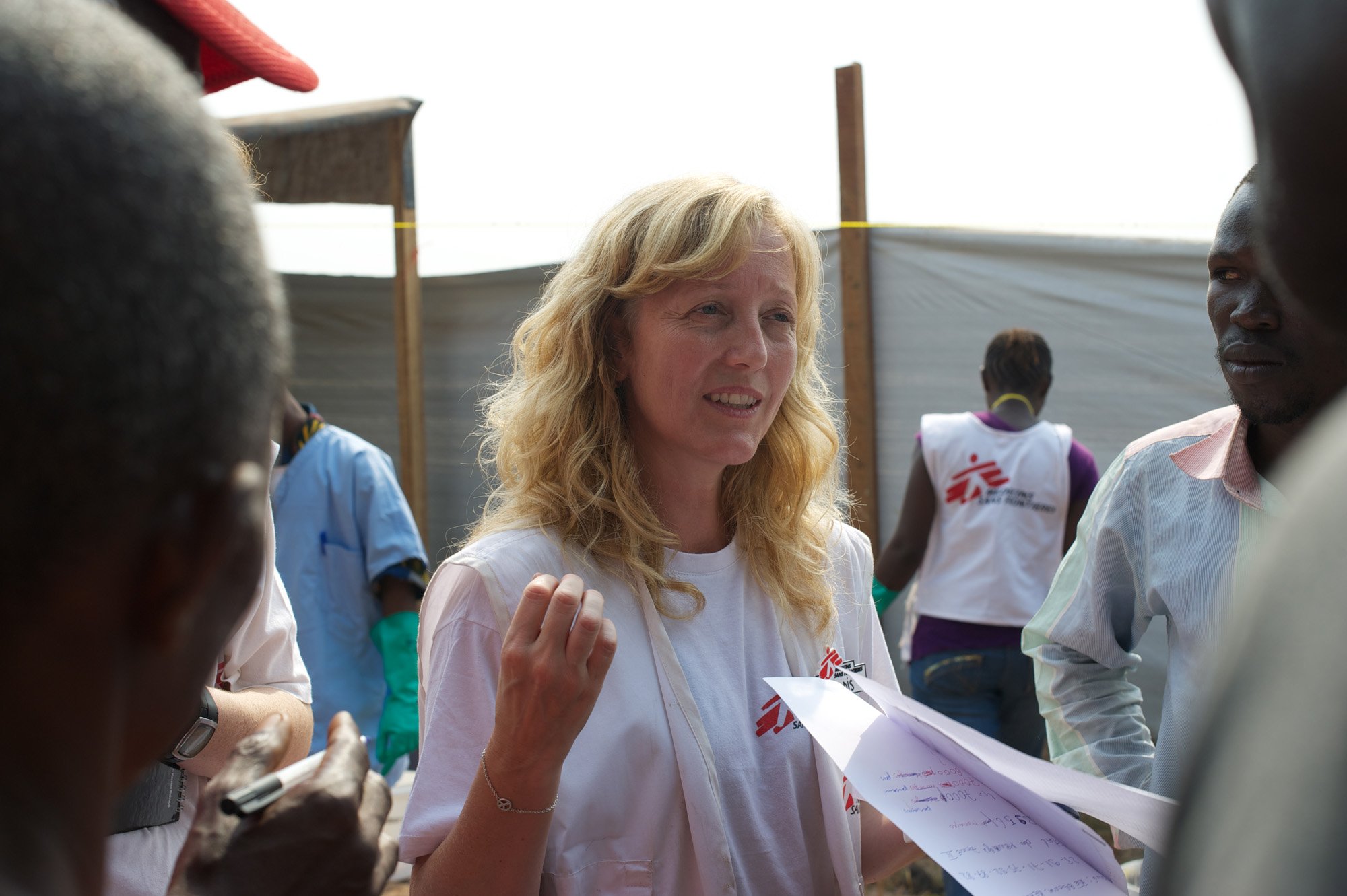Central Africa Republic: We saw the ugly consequences of the fighting every day

Feb 17, 2014
Since early December, MSF has provided medical care to over 1,000 patients wounded by violence in and around Bangui airport, where approximately 100,000 displaced people have taken refuge from a wave of fighting that has spread across the country. In the past week alone, 100 patients were treated for bullet and machete wounds. MSF is carrying out over 1000 medical consultations in the camp every week, and also provides care in other camps and health facilities in the city. Lindis HURUM coordinated MSF activities in the camp and speaks about her experiences there.
How would you describe the general situation in Bangui?
It’s really bad. I don’t think there was a single day while I was there that we didn’t receive casualties at our clinic. In December there were clearer frontlines, with heavy fighting and shooting between mainly two groups, called anti-Balaka and Seleka. But over the weeks this changed into more low-intensity fighting every day, where various smaller groups just slaughtered each other in the street even in broad daylight. We saw the ugly consequences of the fighting every day. People coming in without noses, ears, nipples… Any body part really. One guy came in holding his head to keep it from falling as he was cut with an axe on each side of the neck. It was terrible. It seemed like it wasn’t enough for the fighters to just kill each other, they had to do it in the cruellest way imaginable. They used homemade weapons like clubs with spikes, axes, all kinds of knifes. Once I saw a group of people parading through the camp with a cut off hand as a trophy.
How is the situation for the internally displaced at the camp?
It’s awful. It was awful when they first came to the airport, and it still is. They came with nothing and they still don’t have much. And the airport site is of course not suited for a camp like this. It is absurd to have 100 000 people living 100 meters from the runway, taking shelter where they can, such as underneath the wings of abandoned planes. In the first weeks I felt we were running after a train going faster and faster; every day the situation seemed to get worse. There were no latrines, not enough water, no camp management, no nothing. The combination of the security situation, the extremely rapid expansion of the camp and MSF being the only humanitarian actor present, made it extremely difficult for us to increase our capacity to respond to the needs.
What does MSF medical assistance consist of?
We now have three health posts and a 60 bed hospital in the camp, as well as a referral system to other hospitals for surgical care. On average we are doing 1000 consultations and delivering 10 babies per day in the camp. Since the beginning of December we have also treated more than 1,000 people wounded in the violence, mostly machete and bullet wounds. Other MSF teams in Bangui are working in other camps for displaced people, as well as in a number of health centres. We need to improve the quality of care as it has been very difficult to work on this in this volatile context. I also think we need to focus on mental health care. The people have all witnessed extreme violence, lost family and friends and are on the run. They are traumatised, full of hate and revenge.
What has been the response of other actors?
The UN response in the first weeks of the crisis was extremely slow. It was too little, too late. The airport camp is located in the country’s capital city, so it is the most easily accessible camp. Since the beginning of January there has been distributions of non-food items and food, but the needs remain massive and more should be done, faster.
How is the security situation for the MSF team?
We had stray bullets and even direct shooting into the camp and people were killed, including children. On several occasions we had to throw ourselves on the ground to avoid bullets. Once we also had armed men forcing themselves into the clinic searching for a Muslim who where hiding. We also had to reduce the team and concentrate only on life-saving treatment on several occasions. It was a very difficult decision to make because you know so many people are dependent on our help, but I had to do it, it had become too dangerous. But it was like this the whole time, on and off. We had to reevaluate our situation every morning. But it helped that the different stakeholders understood our mandate, and MSF was never targeted directly.
What are the needs of the displaced people?
The people are scared and traumatised. Some could actually see their homes from the airport, but they didn’t dare go back. They clearly stated that their choice was to either live in this horrible situation or being killed. But they are an incredible people, trying their best to maintain some privacy and normality in a hopeless situation. They want peace and protection so they can go home of course, but apart from that they need pretty much everything. They have primary needs like water and sanitation, shelter, food. Right now I’m most concerned about the sanitary conditions, because if there’s no real system in place, such as latrines, showers and water supply, then when the rainy season comes at the end of March there will be a real threat of epidemics in the camp.





Leave a Comment